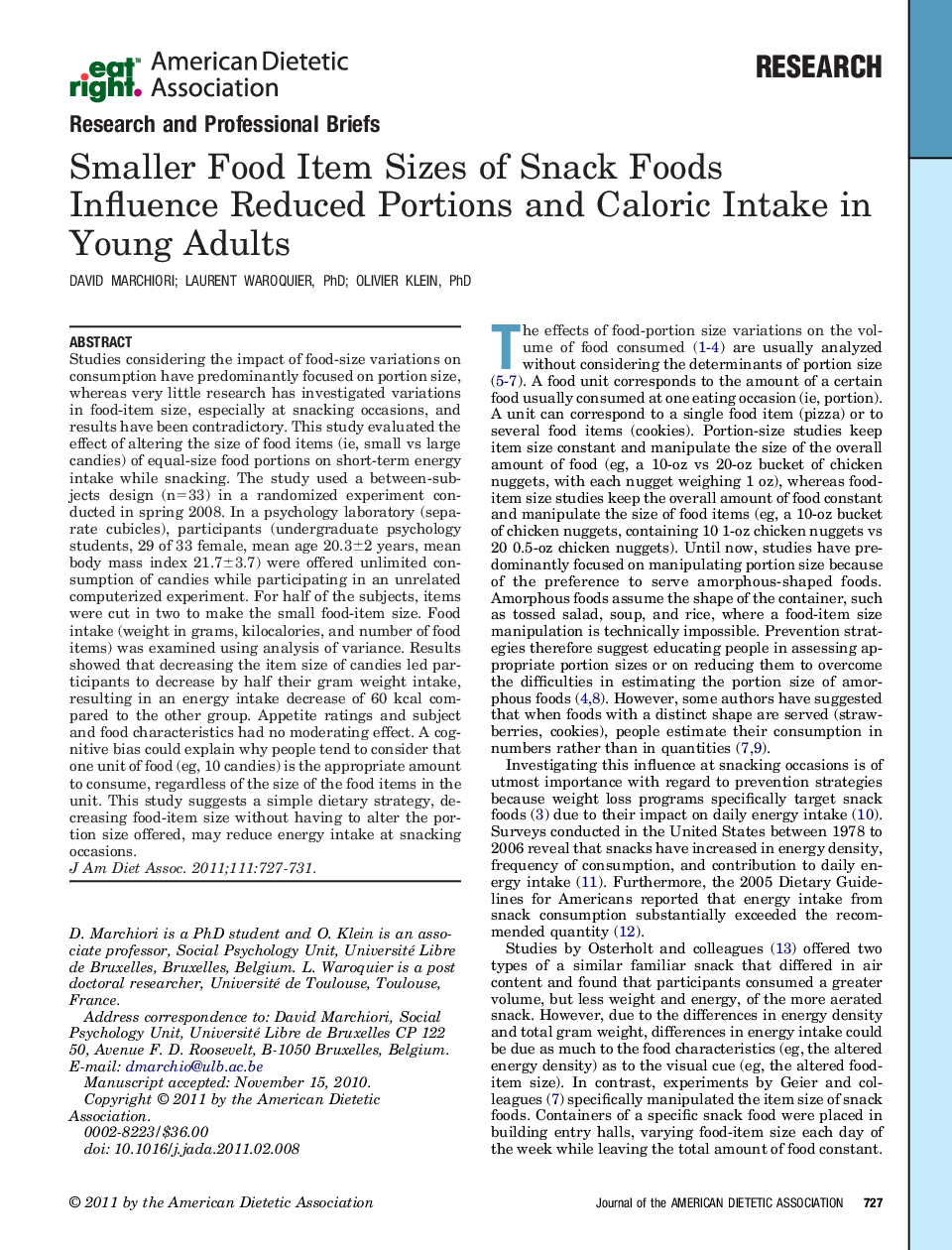| Article ID | Journal | Published Year | Pages | File Type |
|---|---|---|---|---|
| 2654260 | Journal of the American Dietetic Association | 2011 | 5 Pages |
Studies considering the impact of food-size variations on consumption have predominantly focused on portion size, whereas very little research has investigated variations in food-item size, especially at snacking occasions, and results have been contradictory. This study evaluated the effect of altering the size of food items (ie, small vs large candies) of equal-size food portions on short-term energy intake while snacking. The study used a between-subjects design (n=33) in a randomized experiment conducted in spring 2008. In a psychology laboratory (separate cubicles), participants (undergraduate psychology students, 29 of 33 female, mean age 20.3±2 years, mean body mass index 21.7±3.7) were offered unlimited consumption of candies while participating in an unrelated computerized experiment. For half of the subjects, items were cut in two to make the small food-item size. Food intake (weight in grams, kilocalories, and number of food items) was examined using analysis of variance. Results showed that decreasing the item size of candies led participants to decrease by half their gram weight intake, resulting in an energy intake decrease of 60 kcal compared to the other group. Appetite ratings and subject and food characteristics had no moderating effect. A cognitive bias could explain why people tend to consider that one unit of food (eg, 10 candies) is the appropriate amount to consume, regardless of the size of the food items in the unit. This study suggests a simple dietary strategy, decreasing food-item size without having to alter the portion size offered, may reduce energy intake at snacking occasions.
